FPIES: How Do I Know if My Baby Has Food-Protein Induced Enterocolitis Syndrome? with Marion Groetch, MS, RDN
- The definition of food protein-induced enterocolitis syndrome (FPIES) and the symptoms that you may see with this type of allergy.
- Foods that trigger reactions or that are most commonly associated with FPIES.
- Suggestions on what parents should do if they suspect that their baby may be having symptoms of food protein-induced enterocolitis syndrome.
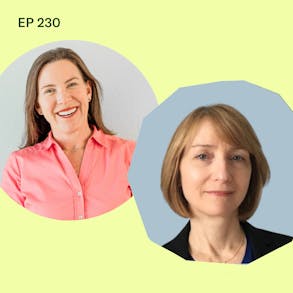
LISTEN TO THIS EPISODE
Episode Description
What is FPIES? How do I know if my baby has FPIES? Although food protein-induced enterocolitis syndrome is a very rare food allergy reaction in babies, it is important for parents to understand the difference between an IgE and non-IgE mediated allergy, as they are often mistaken for the other. In this episode, I am joined by a global expert on the topic of FPIES, Marion Groetch, MS, RDN who is here to discuss some of the common symptoms that result from trigger foods and suggestions on what parents should do if they suspect their baby has FPIES.

About the Guest
- Marion Groetch, MS, RD, is a registered dietitian with a masters degree in clinical nutrition with over 25 years of nutrition care experience
- Director of Nutrition Services at the Jaffe Food Allergy Institute and Assistant Professor of Pediatrics at the Icahn School of Medicine at Mount Sinai
- Marion is involved in food allergy research, educational programming, and the care of patients with food allergy
- She teaches an advanced pediatric food allergy course with co-instructor Carina Venter, PhD, RD

Links from This Episode
To read and learn more about FPIES:
- Visit FPIES.org
- FPIES: Treatment and Management Reactions
- Read the International Consensus Guidelines for the diagnosis and management of Food Protein-Induced Enterocolitis Syndrome: Created by Fallon Schultz who is the founder of I-FPIES association
If you are a professional looking to learn more about pediatric food allergy:
- Pediatric Food Allergy: An exclusive course on nutrition and care for IgE and Non-IgE mediated food allergies course: FARE Certificate of Training
FPIES Handout:
- This is an FPIES Handout developed by Katie Ferraro, Sally Phillips, Lian Liu, Megan Murphy and Olivia Hernandez as part of their work in the FARE - Pediatric Food Allergy Course, 2022
- Baby-Led Weaning with Katie Ferraro program with the 100 First Foods™ Daily Meal Plan, join here: https://babyledweaning.co/program
- Baby-Led Weaning for Beginners free online workshop with 100 First Foods™ list to all attendees, register here: https://babyledweaning.co/baby-led-weaning-for-beginners
Other Episodes Related to this Topic

Latest Episodes
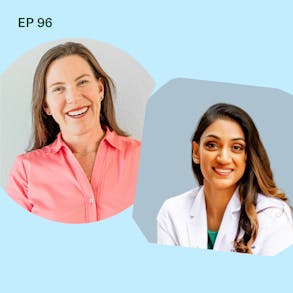
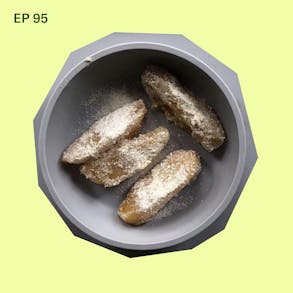
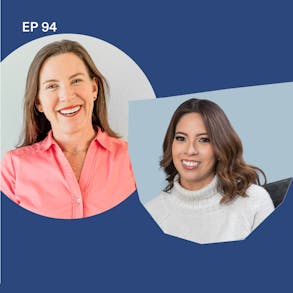

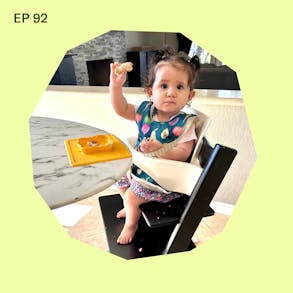
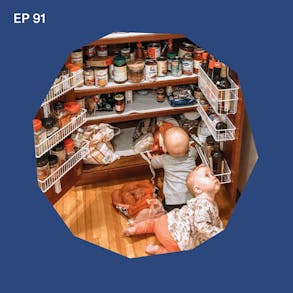
Katie Ferraro (1m 11s):
Hey, there I'm Katie Ferraro, Registered Dietitian college nutrition professor and mom of seven specializing in baby led weaning here on the baby led weaning made easy podcast. I help you strip out all of the noise and nonsense about feeding, leaving you with the competence and knowledge You need to give your baby a safe start to solid foods using baby-led weaning. Well, hi there. And welcome to this episode about FPIES. That's an acronym for food Protein Induced Enterocolitis Syndrome. I have a lot of content on my podcast and in my programs about the IgE mediated food allergies.
Katie Ferraro (1m 52s):
But my guest today is going to take us on a learning tour about one type of non IgE mediated food allergy, which is FPIES. And I want to preface this episode by saying, this is episode number 230 of the baby led weaning made easy podcast. And we have had requests for an FPIES specific episode for a long time, but I dragged my feet on it and I really didn't want to do it because I really wanted to be careful about the person who came on to talk about FPIES, because it is such a rare diagnosis. And if you've listened for any length of time, you know that as a Registered Dietitian, specializing in baby-led weaning, I'm a stickler for ensuring that we only learn about infant feeding from credentialed feeding experts who specialize in the topics that I cover on the podcast.
Katie Ferraro (2m 37s):
And there is nobody better to talk about FPIES then my guests today, Marion Groetch. Marion is a Registered Dietitian with a master's degree in clinical nutrition and over 25 years of nutrition care experience, she's the director of nutrition services at the Jaffe Food Allergy Institute and an assistant professor of pediatrics at the Icahn school of medicine at Mount Sinai. So Marion Groetch is internationally recognized for her work in food allergy research and clinical care of patients with food allergies. She's on like way too many advisory boards and professional associations to mention here. But Marion is also the co-instructor of an advanced pediatric food allergy course for dietitians that I'm enrolled in. I'm actually just finishing it up.
Katie Ferraro (3m 17s):
It's been a year long course. So at the time of this recording and for the past year, I've had the incredible opportunity to learn about pediatric food allergies from Marion and her co-instructor Carina Venter, who has also been a guest on our podcast, a number of times talking about food allergy specific topics. And so I am very excited that Marion has agreed to come and teach us about FPIES today. So with no further ado here is Marion Groetch teaching about FPIES, food, protein-induced enterocolitis syndrome.
Marion Groetch (3m 49s):
Thanks for having me Katie.
Katie Ferraro (3m 50s):
So I'm currently enrolled in your pediatric food allergy class for registered dietitians. I'm loving it. Thank you. Because we were talking before, but there's not a lot of advanced training opportunities for registered dietitians, at least in the US in food allergy. So I've been loving the content, loving the training on FPIES, which is what we're going to talk about today. But before that, could you just give an introduction to our listeners and let us know, how did you come to specialize in food allergy and food allergy research and education as a dietitian?
Marion Groetch (4m 16s):
Oh, so that's actually an interesting question because I came about it almost by accident. So I finished a fellowship in neurodevelopmental disabilities and started working on a feeding team. So I worked on a feeding team for seven years. And you know, when you're out in the field, when you're working by yourself, every once in a while, you come across a patient who is a little bit over your head. So I remember coming across patients that were on home TPN and thinking, oh my gosh, how am I going to calculate this? So I reached out to a dietitian who was working at Mount Sinai at the time, and she was very helpful. Her name was <inaudible> and she was very helpful and she always helped sort of guide me through some of these issues.
Marion Groetch (4m 58s):
And then she worked at the Jaffe food allergy Institute, and then a position opened at the Jaffe food allergy Institute. And she called me, and she said that in particular, they were looking for somebody with feeding experience because frequently when you have children with food allergies, you might also see feeding difficulties. And it's probably from the delayed introduction of some of those solid foods and the diets that are not that diverse and Mount Sinai was going to start a feeding clinic at the same time as sort of to run alongside the food allergy clinic. So they hired me and we built the feeding clinic, but it took two years. And by the time the feeding clinic was built, I was already very entrenched in food allergies should they had left.
Marion Groetch (5m 41s):
And I realized that food allergies was a lot bigger than I thought, as big as feeding. And we didn't really have the resources to do both. So I just ended up being at the best place for food allergy, which is the Jaffe food allergy Institute at the Icahn school of medicine at Mount Sinai. And, you know, just getting involved in the research there there's so much to be done.
Katie Ferraro (6m 1s):
So we have had a ton of content on this podcast about food allergy and the early introduction of allergenic foods to prevent food allergy, et cetera. And I was actually really hesitant to even do an episode on F pies because it is so rare. And I feel like parents sometimes hear about it. And then every time their baby vomits, they're like convinced to death pie. So enough parents asked us for the topics. So I am so grateful for the opportunity to be able to interview you global leading expert on this topic, but can you start us off real basic by answering What is FPIES
Marion Groetch (6m 31s):
FPIES? Okay. So FPIES stands for food protein-induced enterocolitis syndrome, and FPIES is what we call a non IgE immediate allergy. So most allergies that we think about, you know, an allergy allergic symptoms that occur soon after you eat the food are triggered by immunoglobulin E or IgE, and those symptoms could occur on the skin. They could occur in the lungs. You might have difficulty breathing. You might have immediate vomiting soon after eating the food FPIES being a non IgE immediate allergy is delayed in onset. So that's sometimes tricky because FPIES usually occurs anywhere from one to four hours after eating the food.
Marion Groetch (7m 15s):
It almost always occurs like right at two hours after eating the food in a very funny way, we always say it's exactly two hours, but it can be anywhere from one to four hours. And the main criteria for diagnosis of FPIES is vomiting. And the vomiting is dramatic. It is repetitive, forceful vomiting. It's not a little spinning up. It's not one vomit. You usually see multiple episodes of vomiting. The vomiting is very forceful and that's the main criteria for diagnosis. Excessive, forceful vomiting, one to four hours after ingestion. The problem with FPIES is that it's non IgE mediated.
Marion Groetch (7m 57s):
So we don't have any tests to test for specific foods that might be triggering it. So the diagnosis is really one of the clinical presentation.
Katie Ferraro (8m 9s):
So thank you. That is such a helpful explanation. And I'm curious how common is FPIES
Marion Groetch (8m 14s):
FPIES is very rare. Like most food allergies in general, we see IgE immediate allergy is pretty rare. There's another type of non IgE mediated allergy, which is called proctocolitis, which is blood in the stool. And a very young infant. That's much more common. Even FPIES is rare. We don't have very good prevalence data because we didn't have an ICD 10 code until fairly recently. So an ICD 10 code is basically your diagnosis code. And the way we determine prevalence is by looking at these diagnoses in medical records. But if you don't have a diagnosis code to identify FPIES, that it's hard for us to do those kinds of prevalence studies.
Katie Ferraro (8m 56s):
So I was going to ask you about diagnosis, which you explained, how would one get diagnosed? Who is the practitioner, at least in the United States who would diagnose FIS?
Marion Groetch (9m 5s):
So many practitioners don't understand FPIES, pediatricians might not be familiar with FPIES, emergency room doctors might not be familiar with FPIES, so frequently when a, when a patient presents to the emergency room with this very repetitive, forceful vomiting, they might be diagnosed with sepsis, or they might be diagnosed with like gastrointestinal illness and then sent home and frequently it's not until the parent goes home and feeds the same food. And they have a similar reaction that the parent makes the connection. So again, like all types of food allergies, if you are eating the food and you're having a similar reaction that is, should trigger a strong suspicion that that food is maybe causing the reaction and it could be an allergy.
Marion Groetch (9m 52s):
At that point, I would say that patient really needs to see an allergist who has a specialty in food allergy. Sometimes gastroenterologists can manage this as well, and even some pediatricians are familiar with it, but it's really important to see an allergist. I think if you have access.
Katie Ferraro (10m 10s):
So Marion, I've done a ton of content on the podcast about the IgE mediated food allergy. So parents know a lot about the big nine, et cetera, but when it comes to FPIES as a non IgE mediated food allergy, what are the FPIES trigger foods?
Marion Groetch (10m 25s):
So the most common, FPIES trigger foods are milk and soy and then grains and surprisingly the grains that are most commonly associated with FPIES are oats and rice. So these are unfortunately some of the FIRST FOODS that we feed infants. And that's why, because they are not common allergens people don't always make the connection that, that food has caused the reaction.
Katie Ferraro (10m 49s):
Yeah. Rice gets this billing as being essentially hypoallergenic, right? It's white decades. We fed iron-fortified white rice cereal,
Marion Groetch (10m 56s):
Right? And of course, rice is not a common IgE mediated trigger, but it is a common trigger for FPIES. And then there are some fruits and vegetables that are more commonly associated with FPIES, but the, the main trigger foods are milk soy and those grains rice and old grades.
Katie Ferraro (11m 14s):
So if your baby had milk and soy milk and soy are two of the big nine allergenic foods, and at the two hour mark or beyond, there was profuse persistent vomiting, we would suspect FPIES. Now, if they had full-blown body hives, difficulty breathing and, you know, market change in demeanor a few minutes after eating than you would suspect your typical cow's milk, protein allergy or soy allergy, would that be correct?
Marion Groetch (11m 38s):
That would be correct. Yes. The other thing to consider is have they eaten the food before? Have they eaten it subsequently? So say they're drinking cow's milk-based formula, and then they have a couple spoonfuls of yogurt and then they have vomiting afterwards. Then, you know, you probably wouldn't be thinking that the cow's milk-based yogurt caused the vomiting
Katie Ferraro (11m 59s):
Because the formula has had the calcium protein in it.
Marion Groetch (12m 2s):
Yes, exactly. So you have to think about those types of things.
Katie Ferraro (12m 5s):
I have to say, that's been the hardest part for me in the certificate training course that I'm in with you guys for dietitians is the formulas. Like if you do not work in the clinic setting, all of the crazy specialty formulas are so hard to learn. It's like mindblowing,
Marion Groetch (12m 20s):
Right? I know that that is true. And even some of the hypoallergenic formulas actually have cow's milk in them, but they are extensively hydrolyzed so that they are considered hypoallergenic. So it's difficult to look at a label and know, gee is my child getting cows milk based formula or not. But most of typical formulas that infants take right out of the hospital are not hypoallergenic. And then you can be pretty certain and you can ask your pediatrician, is this a cow's milk-based formula?
Katie Ferraro (12m 50s):
And I think a lot of times it's very hard for parents. They try to figure this stuff out on their own. You really do need the expertise of a Registered Dietitian who specialize in this. You know, I think most pediatricians, you know, more than 90% of them in north America have never had a dedicated nutrition class. And so even as far as, you know, maybe reading a label and telling if there's cows milk in it, but then interpreting what that might mean for your baby. I think it is so important to seek help from a dietician.
Marion Groetch (13m 14s):
Very good point, because you know, we, as a teaching hospital, we have fellows that come in and do their fellowship in allergy immunology, the physicians. And one of the first things we have to teach them are about all the different formulas, because they don't know the difference between a cow's milk-based formula and a hypoallergenic formula. We have to teach them.
Katie Ferraro (13m 34s):
So by what age will children generally outgrow FPIES?
Marion Groetch (13m 37s):
So, you know, usually, you know, by three or four years of age, usually by the time they hit school, of course, there's the rare case where they maintain their FPIES reactions, you know, in, into early childhood or even adulthood. But the vast majority will outgrow FPIES at a very young age.
Katie Ferraro (13m 57s):
And is there a higher risk for a baby to have an IgE mediated food allergy if they already have an FPIES diagnosis? Like, are those two linked?
Marion Groetch (14m 5s):
So, you know, we only talked about acute FPIES and one area of acute FPIES is something that we call atypical FPIES. That means it's an infant who has FPIES to a trigger food, but also has IgE to that food. So they are also at risk of having an immediate reaction to that food. And yes, we do see infants with FPIES that have IgE immediate allergies to other foods. I don't know, to be honest with you off the top of my head, if they are at greater risk of having IgE immediate allergies
Katie Ferraro (14m 40s):
In your practice, Marion, can you share how babies with FPIES are counseled or treated or handled from onset of symptoms through diagnosis and treatment? Like if you could design like a perfect course, would that look like for a typical FPIES baby?
Marion Groetch (14m 53s):
So in our practice, when an infant comes in with a suspicion of FPIES, the most important part of the diagnosis is the medical history and the clinical history. So again, we want to see the main criteria, which is that forceful, repetitive vomiting that occurs one to four hours after ingestion of the food. And then there are minor criteria for the diagnosis of FPIES, and that might be, you know, dehydration and shock. It might be the need for an emergency room visit or IV fluids. It might be delayed onset of diarrhea, usually occurring much later after the onset of the vomiting, some of these minor criteria would also typically be present.
Marion Groetch (15m 41s):
Then we would be looking, this is what the physician's job would be looking at. Whether they've eaten the food previously, whether they've eaten it subsequently, we want to see a consistency and symptoms that are presented. And if there is any question as to whether this food was a trigger, there may be an oral food challenge. As you know, even with IgE mediated allergies, oral food challenges are the gold standard for the diagnosis of food allergy, but in FPIES because the symptoms are so dramatic and forceful that we tend not to do oral food challenges.
Marion Groetch (16m 21s):
If the clinical presentation is clear and typically the clinical presentation is quite clear, it's not the kind of symptom that you would miss.
Katie Ferraro (16m 30s):
I love how you say that. You're not good to miss it. If your baby has FPIES
Marion Groetch (16m 34s):
In our class, our students created handouts for,
Katie Ferraro (16m 38s):
And I don't want to brag, but I was on the winning team. And that was the hardest assignment for me because I don't work with this population every day. But that handouts amazing.
Marion Groetch (16m 46s):
No, it was a beautiful handout that you created. And I think one thing that ended up on many of the handouts were a description of the symptoms to look out for it. And I was able to tell every group that you can take those off because once a parent has experienced those symptoms, they don't need to be reminded of what they look like. It is really quite dramatic. So it's not the kind of food allergic disorder where you're thinking, gee, I wonder if this is an FPIES reaction, it will be quite clear that this is not normal. Now having said that there is also something that we call chronic FPIES so we've been talking all along about acute FPIES.
Marion Groetch (17m 26s):
Chronic FPIES actually occurs almost exclusively in very young infants and infants who are fed soy or milk-based formulas. It's very rare to present chronic FPIES in a breastfed infant and chronic FPIES is sort of a progressive intermittent, vomiting and diarrhea. It's not typically associated with the food because the food is chronically in the diet, but it's just vomiting. That gets progressively worse and diarrhea that gets progressively worse. And the child can actually become very ill with failure to thrive. And they may even have, you know, shock and, and met hemoglobin anemia.
Marion Groetch (18m 9s):
They could have lots of very serious symptoms that are associated with it, but almost every pediatrician in the country sees a child like this. And the first thing they're going to do is try to transition them to a hypoallergenic formula. And once they're on the hypoallergenic formula, these symptoms should resolve right away. So the symptoms of chronic FPIES are present only when the food is chronically in the diet. Once that food or that food trigger is removed, the symptoms will resolve.
Katie Ferraro (18m 39s):
What about the mom's diet if she's exclusively breastfeeding.
Marion Groetch (18m 43s):
So if the baby is exclusively breastfed and they're having this symptoms, then the mother would have to try to remove foods from their diet. It is considered very rare to see chronic FPIES in an exclusively breastfed infant. There are some cases that are reported in the literature, and yes, we have seen it in our clinical practice, but it is considered quite rare.
Katie Ferraro (19m 6s):
Can we talk a little bit about FPIES, misconceptions? I feel like I've seen more influencers and mommy bloggers, they learn about FPIES and they talk about it and based on their very short synopsis and like, you haven't even seen a pediatric allergist or a dietitian yet. So I understand it's important when it is a true diagnosis, but this kind of gray area of people thinking every time, their baby vomits, like casually mentioning FPIES, any thoughts about that?
Marion Groetch (19m 27s):
I think it's always really important to have a proper diagnosis, because if you don't have the proper diagnosis, you know, there could be another serious issue happening with your child that you are not aware of when you eliminate foods from a baby's diet, it can result in nutritional risk for that baby, but not only nutritional risk, it can cause, you know, you have talked a lot in your podcast about early introduction of allergens and how this helps to prevent food allergies. But if we are delaying introduction of allergens or delaying introduction of foods, we could actually contribute to the onset of IgE mediated food allergy.
Marion Groetch (20m 7s):
So we really don't want to eliminate any foods from the baby's diet that aren't necessarily needed to be eliminated. What we see in terms of myths of FPIES would be this concept that there are chronic symptoms that are attributed to FPIES when the food is no longer in the diet. So that's something to think about. The other, the most important diagnostic criteria for chronic FPIES is not the symptoms that are present when the food is in the diet and they're having those chronic symptoms when you remove that food. And re-introduce it later after the symptoms have resolved that infant have an acute FPIES reaction, they won't start again to have chronic symptoms.
Marion Groetch (20m 52s):
So that acute FPIES reaction will be your telltale sign and give you that diagnostic criteria. If you don't have that, the diagnosis of chronic FPIES is really presumptive.
Katie Ferraro (21m 4s):
When you're talking about removing the food from the diet, is it immediate cessation of symptoms or is there like a wash out period that parents should be testing for?
Marion Groetch (21m 11s):
So for that chronic FPIES patient, it's usually the symptoms will resolve within a few days. And then if they've had failure to thrive, they'll have a little bit of a period. We'll have some catch-up growth, but that will happen actually quite quickly as well.
Katie Ferraro (21m 26s):
And we've had rose on Meyer on the podcast talking about catch-up growth for other conditions. And she did mention FPIES. So I'm glad we can kind of tie this together and I'll link to some of the other episodes that we're mentioning today in the show notes for this episode. But Marion, I'm curious for parents listening, if you suspect that your baby has FPIES based on the information that you've shared with us today, what should parents do? What should be their first course of action?
Marion Groetch (21m 49s):
So if they suspect their baby has had, you know, an acute FPIES reaction like we spoke of before, they should not feed it again, they should talk to their pediatrician first and then get a referral to an allergist who can actually evaluate the infant. You know, the way we feed an infant, complimentary food introduction in that period between six and 12 months of age for an infant with FPIES is a little bit different than it is for an infant who doesn't have FPIES. Because what we will do then is not delay introduction of foods because we know foods are very important, but there are certain foods that are higher risk to trigger a reaction. And we may delay the introduction of those foods, but there are plenty other foods that we can introduce.
Marion Groetch (22m 35s):
And it's important that the baby start feeding, not just for nutritional needs, but also because we want them to learn, to eat and enjoy a variety of foods. So that's also important. So they really will need guidance from an allergist or an allergy specialist, dietician who can help them to introduce those foods safely and to maybe delay the introduction of those foods that might be higher risk for triggering a reaction.
Katie Ferraro (23m 2s):
And I'm glad that you mentioned the role of the dietitian working in pediatric allergies, because it is so important that the dietitian is, is involved to focus on all of the foods that the baby can eat. And so often when we get a diagnosis, parents think of it like as a death sentence celiac, oh my gosh, it can never have the gluten found in wheat, rye and barley. But look at all of these whole grains that are out there that are gluten-free that your child can eat or with FPIES, if you work through, you know, a big list of foods, yes, these are your trigger foods. But look at all these other foods that your baby can safely eat. And the dietician really is so important to kind of fit that piece of the puzzle in there.
Marion Groetch (23m 36s):
Absolutely.
Katie Ferraro (23m 38s):
So Marianne, where can our audience go to learn more about your work in the work that your team is doing there in New York?
Marion Groetch (23m 43s):
I think that for the parent who is dealing with FPIES or living with FPIES, or trying to understand how to manage their child with FPIES for the first time, there are many parent associations that are actually very good that have good information. So I really like fps.org. That's the I-FPIE's group international food, protein induced enterocolitis syndrome group. This website has a medical advisory board and full disclosure I'm on it. But the leader of this with the woman who started this as Fallon Schultz, and she actually was instrumental in getting the ICD 10 code. She was instrumental in gathering together the experts across the globe in FPIES to write the first international consensus guidelines for the diagnosis and management of FPIES.
Marion Groetch (24m 36s):
It is posted on that website.
Katie Ferraro (24m 37s):
You made us read the whole thing. I love just
Marion Groetch (24m 39s):
Read the whole thing. No, you can, if you want, I don't know how interesting it would be, but it's a great place to get really good information on FPIES. And I think it's important that you get good evidence-based education on FPIES, because I think there is a lot of misinformation regarding FPIES out there. And I think some of that can be very frightening and it could actually trigger maybe avoiding introducing foods, which is not what we want to see in FPIES or for any infant. We don't want to see that. And I think also it sort of highlights how you can manage it in your regular day. It has the emergency treatment plan on their website.
Marion Groetch (25m 22s):
And if you are a pediatrician, doesn't know what an emergency treatment plan for FPIES is, You can go to that website and download it yourself and bring it to your pediatrician because the emergency treatment plan is important because your child may have an FPIES reaction and you might bring them to the emergency room. And it's important that the merchant, the treating physician at the emergency room know what, what they need to do to help your child. So that emergency treatment plan will tell them it will be signed by your pediatrician or your allergist or your gastroenterologist, any physician who is managing you. And, you know, for the most part, it just tells them that your child needs IV fluids and some other medications that might help your child to stop vomiting and to feel better much more quickly.
Marion Groetch (26m 8s):
And of course, that's what you want to see
Katie Ferraro (26m 10s):
Marion, before I let you go. I know that your daughter is expecting you're going to become a grandmother for the first time, just off the top of your head. Like, what are your thoughts about baby Led Weaning?
Marion Groetch (26m 19s):
Ah, so, you know, it's interesting because here I teach a course and you're a student in my class and I'm, I keep thinking I have to become a student of you because I would like to know more about baby-led weaning. I think actually one of the most important things about baby Led Weaning is that it encourages diversity in the diet. And I think diversity in that, you know, six to 12 month period is so important because again, like I earlier teaching children how to eat and enjoy a wide variety of foods is one of the most important things we can do in infancy because it sets the standard for how they might eat growing up. And if we don't introduce foods early, we might miss that window of opportunity when they're open to new tastes and new textures.
Marion Groetch (27m 3s):
And, and that's really, I think for me, the most important thing. So I know that my daughter will be listening to your podcast moving forward, and I'm really excited to become grandma and start feeding an infant. Again, you know, it's going to be an exciting period for me.
Katie Ferraro (27m 18s):
And I'm watching all of your guys' research like a hawk because all of this emerging data about the importance of diet diversity, it really dovetails what we do. I created the a hundred FIRST FOODS approach to baby-led weaning back in 2016. And the reality being that, you know, with traditional spoonfeeding babies might eat as few as 10 or 15 foods by the time they turn one. And if you lose those foods in the second year of life to picky eating, that becomes a very challenging child to feed. And yet, if baby has a hundred foods, by the time they turn one and you lose 10 or 15, be it to food allergy or picky eating or another medical condition, they're still 85 90 plus, you know, in infinite number of foods that babies really can eat. And so our goal, especially mine as a dietician, is to show parents how to prepare those foods safely because you can't just give baby the same exact foods that you're eating as an adult, but with a little bit of education and modification, we can make the vast majority of food safe for babies to eat at six months of age and beyond.
Marion Groetch (28m 10s):
That's great. Really? I'm so excited.
Katie Ferraro (28m 13s):
Well, thank you so much for your time. I really appreciate you explaining FPIES. This is a more challenging topic I think for parents, but I think you did a fabulous job and I appreciate you.
Marion Groetch (28m 21s):
Thank you for having me.
Katie Ferraro (28m 23s):
Well, I hope you guys enjoyed that interview with Marion Groetch. She is such a wealth of knowledge in all things, food allergy, but I really appreciate her coming on to like focus hard on FPIES for you guys. The show notes for this page are going to be very important if you suspect your baby has FPIES. So go to BLW podcast.com forward slash 2, 3 0. I'm going to link to all of the resources that Marion recommended and mentioned in today's episode. So again, that's blwpodcast.com/ 230. And thank you so much for listening and learning here on the baby led weaning made easy podcast.

The Program Baby-Led Weaning with Katie Ferraro
A step-by-step digital program for starting solid foods safely and navigating the original 100 FIRST FOODS™ meal plan with baby-led weaning.
 EXPERT-LED, PROVEN APPROACH TO EATING REAL FOOD
EXPERT-LED, PROVEN APPROACH TO EATING REAL FOOD CONCISE VIDEO TRAININGS TO MASTER BABY-LED WEANING
CONCISE VIDEO TRAININGS TO MASTER BABY-LED WEANING 100 FIRST FOODS DAILY MEAL PLAN WITH FOOD PREP VIDEOS
100 FIRST FOODS DAILY MEAL PLAN WITH FOOD PREP VIDEOS
Baby-Led Weaning for Beginners Free Workshop
Is your baby ready to start solid foods, but you’re not sure where to start? Get ready to give your baby a solid foundation to a lifetime of loving real food…even if you’re feeling overwhelmed or confused about this next stage of infant feeding.
Get baby-led weaning recipes and tips delivered to your email inbox.

